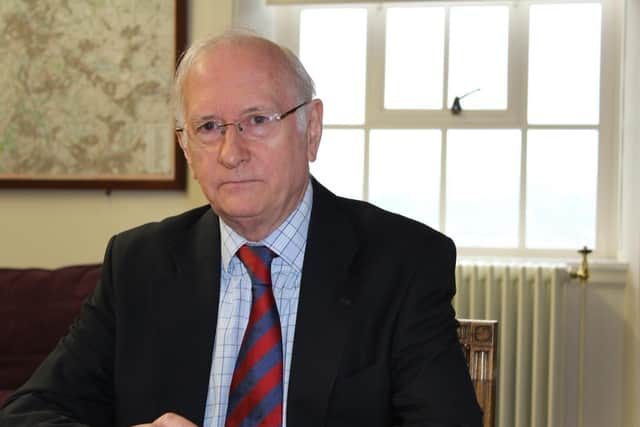Putting prisoners in custody suites is a recipe for disaster: Alan Billings
Now we hear of serious overcrowding in prisons. This latter is going to impact on the police.
On Friday, the prisons and probation minister, Damian Hinds, wrote to the Association of Police and Crime Commissioners to say that there was ‘an acute short-term surge’ in the requirement for places in prisons and he would be making an announcement in Parliament invoking Operation Safeguard. This is an agreement with the police service whereby, in emergencies, the police make available for the prison service up to 400 additional cells in custody suites.
Advertisement
Hide AdAdvertisement
Hide AdHe said the surge in numbers was due to clearing the backlog in court cases that had built up during the period of Covid restrictions, exacerbated by the strike by criminal barristers over the summer. As a result, there were many more prisoners held on remand than usual.


I won’t comment on this save to say that prison overcrowding has been an issue for many years now, long before Covid and the dispute with the criminal bar. Despite that, ministers have continued to insist publicly that more people should go to prison and prison sentences should be longer.
Both of these policies result in demand for prison places to grow at a time when gaols are already full. And the commitment to increase police numbers will also add to the pressures. More police mean more criminals will be caught and receive custodial sentences. More prisons are planned, but that takes time. In the meantime, the shortage of prison places may mean prison governors have to ask for police cells to be requisitioned.
Putting prisoners in custody suites is a disaster. It is bad for the custody suites. If you have ever been in one you will know that they are busy places where everyone has quite enough to do to process all those who are brought there every day.
Advertisement
Hide AdAdvertisement
Hide AdThey too face challenges when they are reaching capacity. But it is certainly not a good idea to have offenders locked up in custody cells 24 hours a day where there is little or no capacity for association, education or recreation.
They also have to be fed – and with something a little more substantial than the simple meals – pizzas, for example – kept in a custody suite. And we need to think about the well-being and safety of custody suite staff, not all of whom are police officers. Managing prisoners, as well as those who are being processed, is just one more complication.
Custody suites do occasionally accommodate prisoners overnight, if, for instance, a court sits late and offenders cannot be taken to prison that night. But holding men for days on end in a custody suite which is not designed to accept long-term prisoners is asking for trouble all round.
So many of our public services seem at the moment to be limping along and hoping for the best. We seem to have lost the capacity to plan ahead competently. As Yeats went on to say in that same poem – in the aftermath of the First World War – it seems as if ‘mere anarchy is loosed upon the world’.
Advertisement
Hide AdAdvertisement
Hide AdBut the good news is I wrote recently about the absurdity of releasing an offender from prison on a Friday afternoon, simply because that was the date when his sentence ended. It was setting someone up to fail.
Unless they acted with great speed and were settling somewhere near the prison, it would be quite impossible for many if not all the ex-offenders to sort out everything that needed to be done on release: making contact with a probation officer, getting a bank account, securing benefits, finding accommodation, and so on.
Yet one third of all releases fall on a Friday and in 2022, two out of three ex-prisoners had not secured accommodation when they left. I suggested that the judge should be able to say that the prisoner should be released on whichever weekday other than a Friday was nearest to the end of the sentence.
Something like this should now happen if a bill currently before the House of Commons is passed. It had its second reading today.
Advertisement
Hide AdAdvertisement
Hide AdBriefly, the Offenders (Day of Release from Detention) Bill will allow prison governors to bring forward the day of release by up to two discretionary days if it would otherwise fall on a Friday or before a bank holiday.
The bill is a Private Member’s Bill and we should congratulate Simon Fell, the Conservative member of parliament for Barrow-in-Furness, for sponsoring it. At one time I was an occasional visitor to his local prison, Haverigg, an open prison for men near Millom in Cumbria. We took toys for the visiting children of prisoners.
This is a ground-breaking reform that costs little or nothing, but could have far reaching consequences.
Dr Alan Billings is South Yorkshire Police and Crime Commissioner